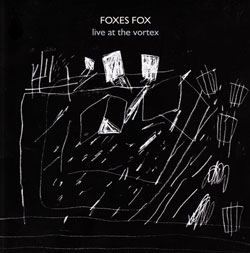
A 2006 concert recording at London's legendary Vortex by Evan Parker (sax), Steve Beresford (piano), John Edwards (bass) and Louis Moholo-Moholo (percussion) with guest Kenny Wheeler for a 2nd set.
Out of Stock
Quantity in Basket: None
Log In to use our Wish List
Shipping Weight: 3.00 units
Sample The Album:
Evan Parker-tenor saxophone
Steve Beresford-piano
John Edwards-doublebass
Louis Moholo-Moholo-percussion
Kenny Wheeler-trumpet, flugelhorn
Click an artist name above to see in-stock items for that artist.
UPC: 5030243120123
Label: psi
Catalog ID: 12.01
Squidco Product Code: 16047
Format: CD
Condition: New
Released: 2012
Country: Great Britain
Packaging: Cardstock gatefold foldover
Recorded at February 20th, 2007 at The Vortex, London.
"A 2006 concert recording at London's legendary Vortex by Evan Parker (tenor saxophone), Steve Beresford (piano), John Edwards (double bass) and Louis Moholo-Moholo (percussion) with special guest Kenny Wheeler (trumpet & flügelhorn) joining the band for the second set."-psi
Artist Biographies
• Show Bio for Evan Parker "Evan Parker was born in Bristol in 1944 and began to play the saxophone at the age of 14. Initially he played alto and was an admirer of Paul Desmond; by 1960 he had switched to tenor and soprano, following the example of John Coltrane, a major influence who, he would later say, determined "my choice of everything". In 1962 he went to Birmingham University to study botany but a trip to New York, where he heard the Cecil Taylor trio (with Jimmy Lyons and Sunny Murray), prompted a change of mind. What he heard was "music of a strength and intensity to mark me for life ... l came back with my academic ambitions in tatters and a desperate dream of a life playing that kind of music - 'free jazz' they called it then." Parker stayed in Birmingham for a time, often playing with pianist Howard Riley. In 1966 he moved to London, became a frequent visitor to the Little Theatre Club, centre of the city's emerging free jazz scene, and was soon invited by drummer John Stevens to join the innovative Spontaneous Music Ensemble which was experimenting with new kinds of group improvisation. Parker's first issued recording was SME's 1968 Karyobin, with a line-up of Parker, Stevens, Derek Bailey, Dave Holland and Kenny Wheeler. Parker remained in SME through various fluctuating line-ups - at one point it comprised a duo of Stevens and himself - but the late 1960s also saw him involved in a number of other fruitful associations. He began a long-standing partnership with guitarist Bailey, with whom he formed the Music Improvisation Company and, in 1970, co-founded Incus Records. (Tony Oxley, in whose sextet Parker was then playing, was a third co-founder; Parker left Incus in the mid-1980s.) Another important connection was with the bassist Peter Kowald who introduced Parker to the German free jazz scene. This led to him playing on Peter Brötzmann's 1968 Machine Gun, Manfred Schoof's 1969 European Echoes and, in 1970, joining pianist Alex von Schlippenbach and percussionist Paul Lovens in the former's trio, of which he is still a member: their recordings include Pakistani Pomade, Three Nails Left, Detto Fra Di Noi, Elf Bagatellen and Physics. Parker pursued other European links, too, playing in the Pierre Favre Quartet (with Kowald and Swiss pianist Irene Schweizer) and in the Dutch Instant Composers Pool of Misha Mengelberg and Han Bennink. The different approaches to free jazz he encountered proved both a challenging and a rewarding experience. He later recalled that the German musicians favoured a "robust, energy-based thing, not to do with delicacy or detailed listening but to do with a kind of spirit-raising, a shamanistic intensity. And l had to find a way of surviving in the heat of that atmosphere ... But after a while those contexts became more interchangeable and more people were involved in the interactions, so all kinds of hybrid musics came out, all kinds of combinations of styles." A vital catalyst for these interactions were the large ensembles in which Parker participated in the 1970s: Schlippenbach's Globe Unity Orchestra, Chris McGregor's Brotherhood of Breath, Barry Guy's London Jazz Composers Orchestra (LJCO) and occasional big bands led by Kenny Wheeler. In the late 70s Parker also worked for a time in Wheeler's small group, recording Around Six and, in 1980, he formed his own trio with Guy and LJCO percussionist Paul Lytton (with whom he had already been working in a duo for nearly a decade). This group, together with the Schlippenbach trio, remains one of Parker's top musical priorities: their recordings include Tracks, Atlanta, Imaginary Values, Breaths and Heartbeats, The Redwood Sessions and At the Vortex. In 1980, Parker directed an Improvisers Symposium in Pisa and, in 1981, he organised a special project at London's Actual Festival. By the end of the 1980s he had played in most European countries and had made various tours to the USA, Canada, Australia, New Zealand and Japan. ln 1990, following the death of Chris McGregor, he was instrumental in organising various tributes to the pianist and his fellow Blue Notes; these included two discs by the Dedication Orchestra, Spirits Rejoice and lxesa. Though he has worked extensively in both large and small ensembles, Parker is perhaps best known for his solo soprano saxophone music, a singular body of work that in recent years has centred around his continuing exploration of techniques such as circular breathing, split tonguing, overblowing, multiphonics and cross-pattern fingering. These are technical devices, yet Parker's use of them is, he says, less analytical than intuitive; he has likened performing his solo work to entering a kind of trance-state. The resulting music is certainly hypnotic, an uninterrupted flow of snaky, densely-textured sound that Parker has described as "the illusion of polyphony". Many listeners have indeed found it hard to credit that one man can create such intricate, complex music in real time. Parker's first solo recordings, made in 1974, were reissued on the Saxophone Solos CD in 1995; more recent examples are Conic Sections and Process and Reality, on the latter of which he does, for the first time, experiment with multi-tracking. Heard alone on stage, few would disagree with writer Steve Lake that "There is, still, nothing else in music - jazz or otherwise - that remotely resembles an Evan Parker solo concert." While free improvisation has been Parker's main area of activity over the last three decades, he has also found time for other musical pursuits: he has played in 'popular' contexts with Annette Peacock, Scott Walker and the Charlie Watts big band; he has performed notated pieces by Gavin Bryars, Michael Nyman and Frederic Rzewski; he has written knowledgeably about various ethnic musics in Resonance magazine. A relatively new field of interest for Parker is improvising with live electronics, a dialogue he first documented on the 1990 Hall of Mirrors CD with Walter Prati. Later experiments with electronics in the context of larger ensembles have included the Synergetics - Phonomanie III project at Ullrichsberg in 1993 and concerts by the new EP2 (Evan Parker Electronic Project) in Berlin, Nancy and at the 1995 Stockholm Electronic Music Festival where Parker's regular trio improvised with real-time electronics processed by Prati, Marco Vecchi and Phillip Wachsmann. "Each of the acoustic instrumentalists has an electronic 'shadow' who tracks him and feeds a modified version of his output back to the real-time flow of the music." The late 80s and 90s brought Parker the chance to play with some of his early heroes. He worked with Cecil Taylor in small and large groups, played with Coltrane percussionist Rashied Ali, recorded with Paul Bley: he also played a solo set as support to Ornette Coleman when Skies of America received its UK premiere in 1988. The same period found Parker renewing his acquaintance with American colleagues such as Anthony Braxton, Steve Lacy and George Lewis, with all of whom he had played in the 1970s (often in the context of London's Company festivals). His 1993 duo concert with Braxton moved John Fordham in The Guardian to raptures over "saxophone improvisation of an intensity, virtuosity, drama and balance to tax the memory for comparison". Parker's 50th birthday in 1994 brought celebratory concerts in several cities, including London, New York and Chicago. The London performance, featuring the Parker and Schlippenbach trios, was issued on a highly-acclaimed two-CD set, while participants at the American concerts included various old friends as well as more recent collaborators in Borah Bergman and Joe Lovano. The NYC radio station WKCR marked the occasion by playing five days of Parker recordings. 1994 also saw the publication of the Evan Parker Discography, compiled by ltalian writer Francesco Martinelli, plus chapters on Parker in books on contemporary musics by John Corbett and Graham Lock. Parker's future plans involve exploring further possibilities in electronics and the development of his solo music. They also depend to a large degree on continuity of the trios, of the large ensembles, of his more occasional yet still long-standing associations with that pool of musicians to whose work he remains attracted. This attraction, he explained to Coda's Laurence Svirchev, is attributable to "the personal quality of an individual voice". The players to whom he is drawn "have a language which is coherent, that is, you know who the participants are. At the same time, their language is flexible enough that they can make sense of playing with each other ... l like people who can do that, who have an intensity of purpose." " ^ Hide Bio for Evan Parker • Show Bio for Steve Beresford "Steve Beresford (born 1950) is a British musician who graduated from the University of York. He has played a variety of instruments, including piano, electronics, trumpet, euphonium, bass guitar and a wide variety of toy instruments, such as the toy piano. He has also played a wide range of music. He is probably best known for free improvisation, but has also written music for film and television and has been involved with a number of pop music groups. Beresford played in Derek Bailey's Company events and in the groups Alterations with David Toop, Terry Day and Peter Cusack, and the Three Pullovers with Nigel Coombes and Roger Smith. He was also a member with Gavin Bryars and Brian Eno of the Portsmouth Sinfonia. Beresford has continued to play free improvisation with a number of prominent musicians, including Evan Parker, Lol Coxhill, John Zorn, and Han Bennink. He has collaborated extensively with Swiss-American artist/musician Christian Marclay and is an active member of the long-standing London Improvisers Orchestra. From 2010 he performed various pieces by John Cage, including Indeterminacy with Tania Chen and comedian Stewart Lee, and a performance with Ilan Volkov at The BBC Proms 2012 at The Royal Albert Hall in London. He has also worked with a number of popular musicians, including Ray Davis, The Slits, Frank Chickens, Ted Milton and The Flying Lizards. In 2015 he performed a duoproject with the upcoming Norwegian singer Natalie Sandtorv at the Blow Out! festival in Oslo, Norway. He was awarded a Paul Hamlyn Award for Artists in 2012. He is a senior lecturer on the Commercial Music course at University of Westminster. Beresford's music and his teachings have inspired the musical community in the UK for over a decade. British songwriter and performer Katy Carr cites Steve Beresford's lectures on musical themes associated with Free improvisation, Experimental music, John Cage, musique concrète, Diamanda Galás and The Slits as a source of initial inspiration with regards to the creation of her debut album, Screwing Lies released in 2001." ^ Hide Bio for Steve Beresford • Show Bio for John Edwards "After taking up the bass, around 1987, John Edwards co-formed The Pointy Birds who went on to win awards for their music for The Cholmondeleys and Featherstonehaughs dance troupes. The group appeared at festivals in Glasgow, Edinburgh, Moers, Leverkusen, Copenhagen. Around 1990, Edwards played his first gigs with London improvisers such as Roger Turner, Lol Coxhill, Maggie Nicols, Phil Minton. Between 1990 and 1995 Edwards was a member of three touring groups simultaneously: B-Shops For The Poor, The Honkies and GOD. During this period he also became an increasingly regular player on the London improvised music scene and performed his first solo gigs; he composed and performed music theatre with the bass and cello duo The Great Explorers, street-busked a lot and appeared at many more festivals in Germany, Estonia, France, Italy, Czech, etc. Since 1995 John Edwards has become a "mainstay" of the London scene, playing with just about everybody, an activity that has seen him clocking up between 150 and 200 gigs a year. He has become regular player with Evan Parker, in many groupings, and with Tony Bevan, Veryan Weston, and Elton Dean, often in collaboration with Mark Sanders on percussion. He has become a more frequent player on the European (and festival) scene, appearing at Taktlos, Ulrichsburg, Nickelsdorf, Budapest, New Zealand and in the USA. He continues to work on solo performances." ^ Hide Bio for John Edwards • Show Bio for Louis Moholo-Moholo "Louis Tebogo Moholo (born 10 March 1940), is a South African jazz drummer. Born in Cape Town, Moholo formed The Blue Notes with Chris McGregor, Johnny Dyani, Nikele Moyake, Mongezi Feza and Dudu Pukwana, and emigrated to Europe with them in 1964, eventually settling in London, where he formed part of a South African exile community that made an important contribution to British jazz. He was a member of the Brotherhood of Breath, a big band comprising several South African exiles and leading musicians of the British free jazz scene in the 1970s and is the founder of Viva la Black and The Dedication Orchestra. His first album under his own name, Spirits Rejoice on Ogun Records, is considered a classic example of the combination of British and South African players. In the early 1970s, Moholo was also a member of the afro-rock band Assagai. He has played with many musicians, including Derek Bailey, Steve Lacy, Evan Parker, Enrico Rava, Roswell Rudd, Irène Schweizer, Cecil Taylor, John Tchicai, Archie Shepp, Peter Brötzmann, Mike Osborne, Keith Tippett, Elton Dean and Harry Miller. Moholo returned to South Africa in September 2005, performing with George Lewis at the UNYAZI Festival of Electronic Music in Johannesburg. He now goes under the name Louis Moholo-Moholo because the name is more ethnically authentic. South African promoter Slow Life in March 2017 at the Olympia Bakery in Kalk Bay, Cape Town produced a show where Louis performed along with Mark Fransman, Reza Khota, Keenan Ahrends and Brydon Bolton." ^ Hide Bio for Louis Moholo-Moholo • Show Bio for Kenny Wheeler "Kenneth Vincent John Wheeler, OC (14 January 1930 - 18 September 2014) was a Canadian composer and trumpet and flugelhorn player, based in the U.K. from the 1950s onwards. Most of his performances were rooted in jazz, but he was also active in free improvisation and occasionally contributed to rock music recordings. Wheeler wrote over one hundred compositions and was a skilled arranger for small groups and large ensembles. Wheeler was the patron of the Royal Academy Junior Jazz course. Wheeler was born in Toronto, Ontario, on 14 January 1930. Growing up in Toronto, he began playing cornet at age 12, and became interested in jazz in his mid-teens. Wheeler spent a year studying composition at the Royal Conservatory in Toronto in 1950. In 1952 he moved to Britain. He found his way into the London jazz scene of the time, playing in groups led by Tommy Whittle, Tubby Hayes, and Ronnie Scott. In the late 1950s, he was a member of Buddy Featherstonhaugh's quintet together with Bobby Wellins. Throughout the sixties, he worked with John Dankworth, and also formed part of (Eric Burdon and) the Animals' Big Band that made its only public appearance at the 5th Annual British Jazz & Blues Festival in Richmond (1965) with tenors Stan Robinson, Dick Morrissey and Al Gay, baritone sax Paul Carroll, and fellow trumpets Ian Carr and Greg Brown. In 1968, Wheeler appeared on guitarist Terry Smith's first solo album, Fall Out. Wheeler performed and recorded his own compositions with large jazz ensembles throughout his career, beginning with the first album under his own name, Windmill Tilter (1969), recorded with the John Dankworth band. A CD was released by BGO Records in September 2010. The big band album Song for Someone (1973) fused Wheeler's characteristic orchestral writing with passages of free improvisation provided by musicians such as Evan Parker and Derek Bailey, and was also named Album of the Year by Melody Maker magazine in 1975. It has subsequently been reissued on CD by Parker's Psi label. In the mid-1960s, Wheeler became a close participant in the nascent free improvisation movement in London, playing with John Stevens Parker, the Spontaneous Music Ensemble and the Globe Unity Orchestra. Despite the above-noted accomplishments, much of his reputation rests on his work with smaller jazz groups. Wheeler's first small group recordings to gain significant critical attention were Gnu High (1975) and Deer Wan (1977), both for the ECM label (Gnu High is one of the few albums to feature Keith Jarrett as a sideman since his tenure with Charles Lloyd). One exception from the ongoing collaboration with ECM was his rare album on CBC called Ensemble Fusionaire in 1976. This had three other Canadian musicians and was recorded in St. Mary's Church in Toronto for a different character to the sound than on the ECM recordings. Wheeler was the trumpet player in the Anthony Braxton Quartet from 1971 to 1976, and from 1977 he was also a member of the chamber jazz group Azimuth (with John Taylor and Norma Winstone).Later life In 1997 Wheeler received widespread critical praise for his album Angel Song, which featured an unusual "drummerless" quartet of Bill Frisell (guitar), Dave Holland (bass) and Lee Konitz (alto sax). Wheeler died after a short period of frail health at a nursing home in London on 18 September 2014. He was 84 years old." ^ Hide Bio for Kenny Wheeler
11/29/2024
Have a better biography or biography source? Please Contact Us so that we can update this biography.
11/29/2024
Have a better biography or biography source? Please Contact Us so that we can update this biography.
11/29/2024
Have a better biography or biography source? Please Contact Us so that we can update this biography.
11/29/2024
Have a better biography or biography source? Please Contact Us so that we can update this biography.
11/29/2024
Have a better biography or biography source? Please Contact Us so that we can update this biography.
Track Listing:
1. Foxes Set 1 38:39
2. Foxes Set 2 30:32
3. Foxes Set 3 9:44
Improvised Music
European Improv, Free Jazz & Related
Parker, Evan
EMANEM & psi
Staff Picks & Recommended Items
Free Improvisation
Quintet Recordings
Instant Rewards
Search for other titles on the label:
psi.


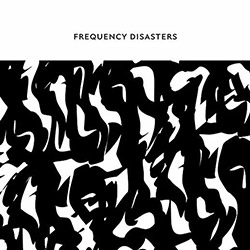
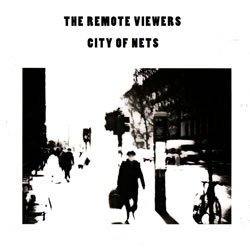
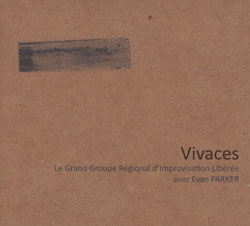
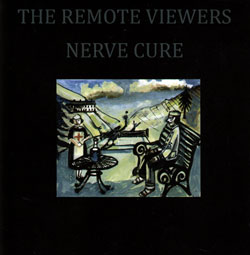

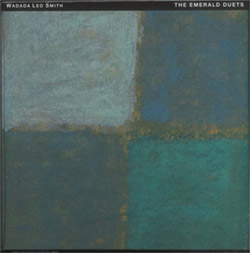
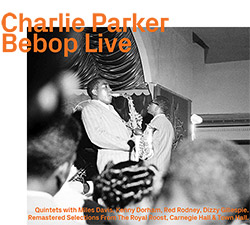

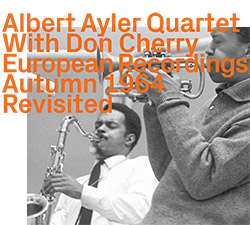
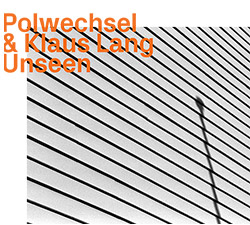

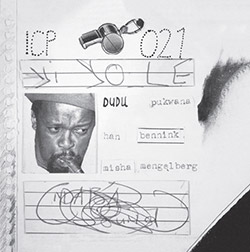
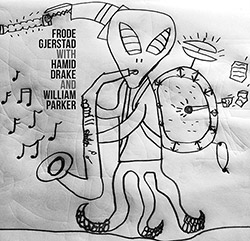
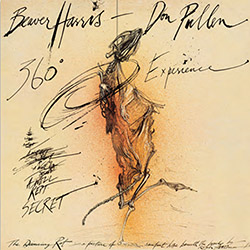

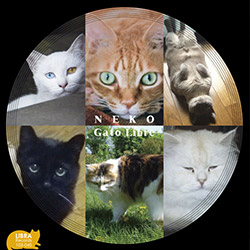






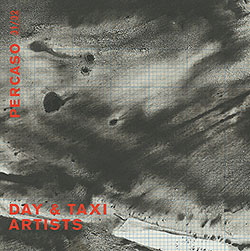
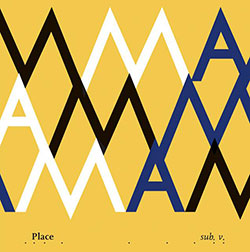






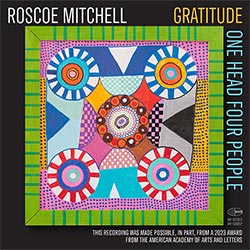
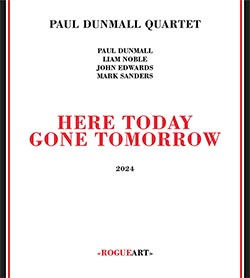
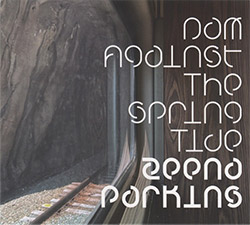
![Weston, Matt: Communism Has Appeared On The Scene [VINYL 2 LPs]](https://www.teuthida.com/productImages/misc4/35546.jpg)
![Coleman, Steve & Five Elements: PolyTropos / Of Many Turns [2 CDs]](https://www.teuthida.com/productImages/misc4/35476.jpg)
![Sorey, Tyshawn (w/ Diehl / Ragahavan): The Susceptible Now [DOUBLE VINYL]](https://www.teuthida.com/productImages/misc4/35477.jpg)


![John Coltrane Quartet (Coltrane / Tyner / Garrison / Jones): Impressions From Graz 1962, Revisited [2 CDs]](https://www.teuthida.com/productImages/misc4/35495.jpg)

![Guy, Barry / Ken Vandermark: Occasional Poems [2 CDs]](https://www.teuthida.com/productImages/misc4/34849.jpg)
![Novoa / Carter / Mela Trio: Vol.1 [VINYL]](https://www.teuthida.com/productImages/misc4/35236.jpg)


![Elephant9 : Mythical River [VINYL]](https://www.teuthida.com/productImages/misc4/34624.jpg)
![Evans, Peter (Evans / Eldh / Black): Extra [VINYL]](https://www.teuthida.com/productImages/misc4/35279.jpg)

![McPhee, Joe: Straight Up, Without Wings [BOOK]](https://www.teuthida.com/productImages/misc4/35454.jpg)
![Jeck, Philip: rpm [2 CDs]](https://www.teuthida.com/productImages/misc4/35455.jpg)









![Barker / Parker / Irabagon: Bakunawa [VINYL]](https://www.teuthida.com/productImages/misc4/35533.jpg)




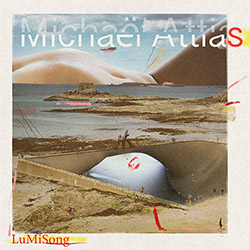
![Blaser, Samuel / Marc Ducret / Peter Bruun: Dark Was The Night, Cold Was The Ground [VINYL 10-inch]](https://www.teuthida.com/productImages/misc4/35492.jpg)






![Warren, Kenny (Warren / Hoffman / Ellman): Sweet World [VINYL]](https://www.teuthida.com/productImages/misc4/35451.jpg)




![Blake, Ran / Dave Knife Fabris: Live Amsterdam 2006, First Visit [CD + POSTCARDS]](https://www.teuthida.com/productImages/misc4/35275.jpg)




![DNS: Taking Big Bites Of The Khandas Three Cafes Deep [2 CDs]](https://www.teuthida.com/productImages/misc4/35334.jpg)




![Cleaver, Gerald: The Process [VINYL]](https://www.teuthida.com/productImages/misc4/34966.jpg)




![Alva Noto: HYbr:ID II [VINYL 2 LPs]](https://www.teuthida.com/productImages/misc4/35201.jpg)

![Baron, Derek / Luke Martin: Distinct and Concealed [CASSETTE + DOWNLOAD]](https://www.teuthida.com/productImages/misc4/35079.jpg)

![Lyle, Erica Dawn : Colonial Motels [CASSETTE + DOWNLOAD]](https://www.teuthida.com/productImages/misc4/35080.jpg)









![Sanna, Claudio: Compositori Sardi Contemporanei II [2 CDs]](https://www.teuthida.com/productImages/misc4/35317.jpg)







![Zurria, Manuel: Fame di Vento [3 CDs]](https://www.teuthida.com/productImages/misc4/35167.jpg)

![Granberg, Magnus / Nattens Inbrott / Skogen: Holde Traume, Kehret Wieder! [2 CDs]](https://www.teuthida.com/productImages/misc4/35038.jpg)
![Frey, Jurg: Outermost Melodie [2 CDs]](https://www.teuthida.com/productImages/misc4/35039.jpg)

![Pavone, Jessica: Reverse Bloom [VINYL]](https://www.teuthida.com/productImages/misc4/34895.jpg)




![Modney (Modney / Wooley / Gentile / Roberts / Pluta / Symthe / ...): Ascending Primes [2 CDs]](https://www.teuthida.com/productImages/misc4/34852.jpg)







![Elephant9 with Terje Rypdal: Catching Fire [VINYL 2 LPs]](https://www.teuthida.com/productImages/misc4/35355.jpg)
![Deerlady (Obomsawin, Mali / Magdalena Abrego): Greatest Hits [VINYL]](https://www.teuthida.com/productImages/misc4/34876.jpg)




![Haino, Keiji: Black Blues [2 CDs]](https://www.teuthida.com/productImages/misc4/35109.jpg)



![Surplus 1980: Illusion of Consistency [CD]](https://www.teuthida.com/productImages/misc4/35069.jpg)
![Staiano, Moe: Away Towards the Light [VINYL + DOWNLOAD]](https://www.teuthida.com/productImages/misc4/35037.jpg)



![Caveira (Gomes / Sousa / Abras / Ferrandini): Ficar Vivo [VINYL]](https://www.teuthida.com/productImages/misc4/34643.jpg)
![Gregg, J. J. / David Van Auken: Lunar Prairie [CD w/ DOWNLOAD]](https://www.teuthida.com/productImages/misc4/34611.jpg)

![Coultrain: Mundus [VINYL]](https://www.teuthida.com/productImages/misc4/32439.jpg)
![Mattin: Songbook #6 [VINYL]](https://www.teuthida.com/productImages/misc4/27317.jpg)
![Punkappella: Wake Up [7-inch VINYL]](https://www.teuthida.com/productImages/misc4/17519.jpg)
![Residents, The: WARNING: UNiNC.: Live And Experimental Recordings 1971-1972 [VINYL 2 LPs]](https://www.teuthida.com/productImages/misc4/31521.jpg)
![Coultrain: Phantasmagoria [VINYL]](https://www.teuthida.com/productImages/misc4/30142.jpg)
![Lennon, Sean Ono: Asterisms [VINYL]](https://www.teuthida.com/productImages/misc4/34517.jpg)

![Coley, Byron: Dating Tips for Touring Bands [VINYL]](https://www.teuthida.com/productImages/misc4/17906.jpg)

![Lost Kisses: My Life is Sad & Funny [DVD]](https://www.teuthida.com/productImages/misc4/lostKissesDVD.jpg)